Expanding the Fleet: Operator goes from Food Truck Grind to Lobster Roll Gold
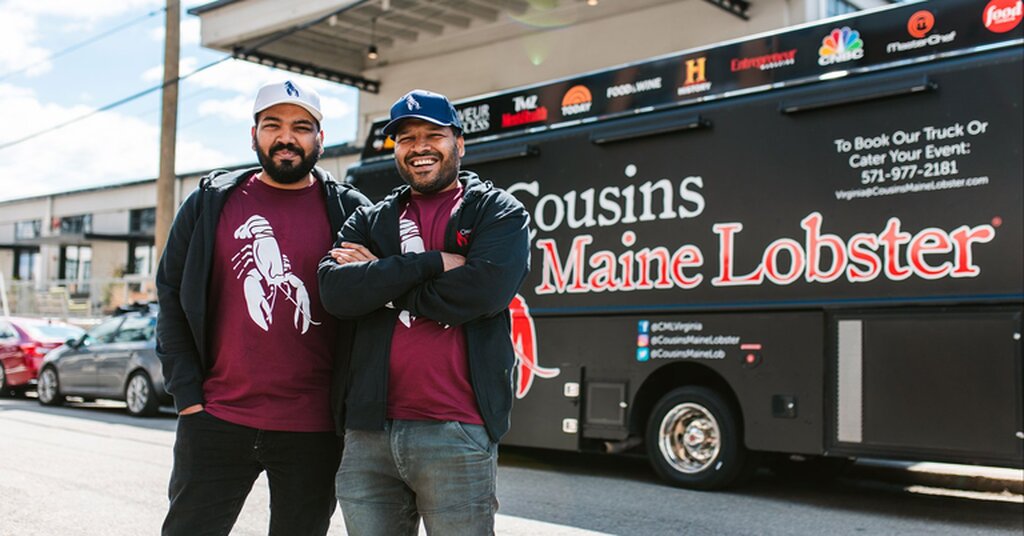
Name: Yunus Shahul
Title: Franchise Owner
Company: Smartfoods Group
No. of units: 24 Cousins Maine Lobster, 1 German Doner Kebab
Age: 40
Family: Married and 2 children
Years in franchising: 7 years
Years in current position: 7 years
Yunus Shahul remembers working long hours in the cramped quarters of an Indian food truck and wondering how his sales would be each day. He says those 10 years were “the worst experience of my life.” But a chance encounter with Cousins Maine Lobster changed his trajectory.
Shahul was working a food truck event when he noticed a long line of customers around a Cousins Maine Lobster truck. The popularity of the concept caught his attention, so he researched the brand. He discovered a proven business model with low overhead and ease of operation. He realized a cooking background wasn’t necessary to prepare the lobster grilled cheese, New England clam chowder, or its featured item, the lobster roll. After taking a hard look at the opportunity, Shahul said, “Wow, is that it?”
The first person he called after discovering Cousins Maine Lobster was his brother, Thameem. Shahul said his brother always believed in him and encouraged him. The two leaped together and purchased their first Cousins Maine Lobster franchise in Connecticut in 2018.
“I didn’t want to get too comfortable with what I was doing at that point in my career,” Shahul says. “I would rather take a risk and use the skills I acquired in the restaurant industry. I learned many practical things in life. Why can’t I put that into one truck on my own? I didn’t have the money to invest in a brick-and-mortar business. That risk scared me. It was much safer to invest in a mobile business, especially with the high chance of being profitable from the start.”
Today, the brothers own 24 Cousins Maine Lobster franchise territories across six states. Thameem handles the purchasing and inventory while Yunus coordinates event scheduling and oversees a sales team of 23 people. Each truck operates with two to four team members with the ability to add others during large events or busy times. Managing so many employees and territories requires constant organization and communication.
Shahul says their success has been fueled by the leadership structure and brand visibility of Cousins Maine Lobster along with a strategic approach to scheduling the routes and events for the food trucks. He says that offering quality seafood products in high demand has contributed to consistently high sales.
After seven years in the system, the Shahul brothers are the largest franchisees in the Cousins’ system with 24 trucks. They are looking to continue to grow in new and existing markets in the Midwest in hopes of reaching $30 million in annual revenue.
“It feels like we just started this yesterday,” he says. “We are not done. There is a lot left for us. Just because we did great yesterday doesn’t guarantee success for the future. I want to repeat and build on my success and hold everything to a high standard.”
PERSONAL
First job: As a dishwasher in India when I was 16.
Formative influences/events: The greatest impact in my life has been my dad. He is a person who never attended school or college yet possesses wisdom, self-discipline, and business sense. As soon as I was old enough, I watched the way he lived his life with honesty, resilience, and keen intuition. Seeing the way he created and ran a life through his own effort showed me that achievement doesn’t necessarily reside in textbooks. It is constructed through effort, creativity, and perseverance. His example influenced my values, directed my aspirations, and helped me appreciate all types of intelligence.
Key accomplishments: From one food truck to 24 units and growing. In other words, going from $350 in daily sales to an average of $100,000 in daily sales.
Biggest current challenge: I believe not just me, but many of us who are involved in business face the same challenges when it comes to balancing time with family and time at work because, at a certain point, work becomes our family too.
Next big goal: I’m focused on growing our footprint by expanding our fleet and adding new territories with the goal of bringing Cousins Maine Lobster to more communities across our region. We are specifically looking at new and existing markets in the Midwest.
First turning point in your career: The Almighty has selected me to pass through the journey of Cousins Maine Lobster in life. It was a turning moment in my life, and such good things come to selected individuals, and I am grateful to God for selecting me.
Best business decision: Choosing Cousins Maine Lobster. I have been able to be very profitable since day one as a franchise owner, especially for someone who previously did not have an ownership background. There are few overhead costs, and I have been able to scale up the business.
Hardest lesson learned: I’ve come to understand, sometimes in a hard way, that not everyone and everything is worth my time, energy, investment, or generosity. One of the most valuable skills is learning to say “no” to people and situations that don’t contribute to our growth or align with our purpose. Protecting your focus is just as important as pursuing opportunity.
Work Week: Many people believe that how we end the day is what matters most, but I believe it’s how we start our day that truly sets the tone for everything else. My day begins at 4 a.m. with the Dawn prayer. Devoting the first 30 minutes after waking to connect and reflect with the Creator is the most valuable part of my day as it naturally flows to the cherished family time that comes after that. Once I reach the office, the workday begins with emails, calls, and team meetings. Of course, there are short breaks in between. After work, I play tennis and then head home to spend the rest of the evening with my family. Every day includes a brief time for reflection, review, and preparation for the next day. I close my day with prayer and gratitude. This daily rhythm essentially becomes my weekly routine as well.
Exercise/workout: I play tennis six hours a week.
Best advice you ever got: The best advice I ever received in life is from my dad, who said, “Even if you’re on a sidewalk begging, treat it as a profession and approach it with complete sincerity.” Throughout my working career, I’ve always applied this one simple rule.
What’s your passion in business? My passion is keeping our customers satisfied by delivering the quality and service that Cousins Maine Lobster represents. I’m committed to upholding our brand values while ensuring every customer has an exceptional experience.
How do you balance life and work? You’ll never truly find the balance between life and work without the right partner. I’m blessed to have an amazing, caring, and loving wife and a wonderful family.
Guilty pleasure: Nothing comes to mind.
Favorite book: The Quran.
Favorite movie: Movies that carry a social meaning in life. One of my favorites is “The Pursuit of Happyness.”
What do most people not know about you? Before franchising, I had a background in the medical field.
Pet peeve: I don’t like to repeat things or keep following up. I expect my team to deliver it when it’s said once.
What did you want to be when you grew up? I had short-term and long-term goals at 17 years old. My short-term goal was to save enough to fill my belly, and my long-term goal was to work diligently until I was capable enough to afford buying other people a meal.
Last vacation: Miami in May.
Person you’d most like to have lunch with: My wife.
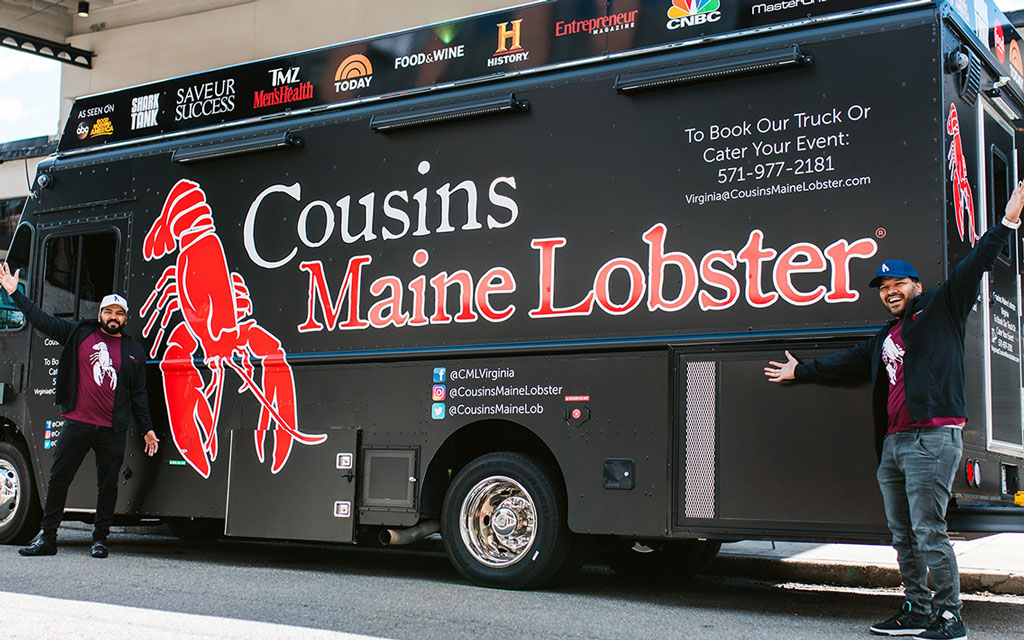
MANAGEMENT
Business philosophy: To maintain honesty and recognize that short-term success is never guaranteed to last forever.
Management method or style: My management style is to maintain the same high energy and engagement with my team as I had on their first day. I believe in staying actively involved and committed to supporting them throughout their entire journey and never becoming complacent once they’re settled in.
Greatest challenge: Balancing multiple trucks and territories while ensuring every team consistently upholds the brand’s high standards can be complex. However, it is also one of the most rewarding parts of the job.
How do others describe you? Driven, collaborative, and grounded in the details. I lead by example and care deeply about consistency and culture across every truck.
Have you ever been in a mentor-mentee relationship? What did you learn? While I haven’t had a formal mentor-mentee relationship, I’ve learned valuable lessons from various business owners and operators throughout my career. I’ve gained insight by observing what not to do and using their mistakes as guidance for better business practices.
One thing you’re looking to do better: I’m always working on becoming a more strategic delegator. I want to be able to empower my team more so that I can stay focused on growth and big-picture decisions.
How you give your team room to innovate and experiment: I create an environment where feedback is encouraged, and team members feel ownership over their roles. We celebrate ideas that improve service and operations.
How close are you to operations? I’m deeply involved in daily operations and closely monitor every interaction and challenge between our truck teams and managers through our tracking system. This hands-on approach allows me to quickly identify and resolve issues while providing immediate support where needed.
What are the two most important things you rely on from your franchisor? These days, many marriages fall apart quickly due to a lack of love and communication. But with Cousins Maine Lobster as my franchisor, this has been the best partnership I’ve ever had because it’s built on both genuine care and open, consistent communication.
What you need from vendors: I expect prompt responsiveness from our vendors, and fortunately, all of them have consistently delivered quick support whenever my team encounters issues or challenges. Their reliability has been essential to our smooth operations.
Have you changed your marketing strategy in response to the economy? How? Social media has been incredibly valuable to our business model, and we’ve maximized our leverage of social media to its full potential. We haven’t altered our marketing approach because our current strategy is working exceptionally well for us.
How is social media affecting your business? Facebook has been our primary promotional platform, and while it hasn’t hurt us yet, I’ve noticed declining user engagement as more companies enter the digital space. I’m looking forward to exploring other available platforms to maintain our momentum and stay ahead of emerging trends.
In what ways are you using technology (like AI) to manage your business? The AI space is currently very noisy, making it difficult to commit to a single tool and invest the time needed to master it effectively. I prefer to wait until the AI ecosystem in marketing settles and then implement a solution that’s specifically suited to our food truck business model.
How do you hire and fire? I hire based on attitude and cultural fit and then train for skills. When it comes to firing, I address performance issues quickly and directly to maintain team standards.
How do you train and retain? We train and retain by promoting from within. Every regional manager started as a crew member, gaining firsthand experience under the guidance of our director of operations. This ensures deep operational knowledge and consistent standards across teams. We also support retention with competitive benefits, including free housing for full-time staff.
How do you deal with problem employees? As a multi-unit operator, challenges are expected, but our general managers are well trained and empowered with clear policies to handle employee issues independently and effectively.
Fastest way into your doghouse: Cutting corners on quality or guest experience. Those are nonnegotiables for me. We’re known for excellence, and I expect every truck to reflect that.
BOTTOM LINE
Annual revenue: $24 million.
Goals over the next year: The goal is to continue to increase revenue with the next target being to hit $30 million.
Growth meter: How do you measure your growth? We measure growth by tracking the number of active units in each market and their performance. Markets performing above the system average are prime locations for expansion if there are available vending opportunities.
Vision meter: Where do you want to be in five years? 10 years? In five years, I aim to have built something meaningful, whether that’s refining a business model to run independently or applying lessons from failure to a smart second venture. Within ten years, I want to look back knowing I didn’t chase titles or trends but created systems, brands, or cultures that thrive without my constant presence. My goal is to be highly relevant, not just successful.
Do you have brands in different segments? Why/why not? In addition to being a franchisee with Cousins Maine Lobster, I also operate a German Doner Kebab franchise, a European-based concept. I chose it to diversify my portfolio and tap into different market segments.
How is the economy in your region(s) affecting you, your employees, your customers? The economy hasn’t significantly impacted us thanks to our mobile model, which keeps overhead low and operations agile. This flexibility helps us retain staff and adapt to market changes, allowing us to continue serving our customers affordably even in high-cost or economically uncertain regions.
Are you experiencing economic growth in your market? Yes. We’re experiencing steady economic growth driven by strong unit performance, low overhead, and high demand across diverse markets. Our mobile model enables us to enter new communities and seize opportunities with minimal risk.
How do changes in the economy affect the way you do business? Our food truck business model remains strong regardless of economic conditions because of its low overhead and operational flexibility. Unlike brick-and-mortar establishments, we avoid burdens like property taxes and high urban rents. The foot truck model isn’t just cost-effective; it’s strategic, which allows us to enter emerging markets and shift locations based on demand. It ensures we stay responsive, efficient, and impactful.
How do you forecast for your business? One of our core success elements is strategically booking our trucks based on historical performance and ongoing market insights. While we follow proven patterns, we tailor our approach to the unique dynamics of each territory and prioritize booking our trucks far in advance. Weekly projections are developed in advance, evaluating the potential of upcoming vending locations. I also meet with our booking team two weeks ahead to align our strategy and ensure optimal execution.
What are the best sources for capital expansion? The best sources have been local lenders who support community-based businesses along with traditional commercial auto loans tailored to our mobile food truck model.
Experience with private equity, local banks, national banks, other institutions? Why/why not? I have never had any adverse dealings with banks or lenders. To the contrary, I’ve actually gotten truck financing with same-day approval due to the high revenue, low operating expense, and high EBITDA our mobile operations earn compared to the typical brick-and-mortar locations.
What are you doing to take care of your employees? We invest in our employees with competitive salaries, free accommodations for our full-time employees, flexible scheduling, and open career advancement opportunities. The majority of our management team completed their career journey from the ground up, demonstrating our emphasis on cultivating internal talent and creating long-term careers.
How are you handling rising employee costs (payroll, minimum wage, healthcare, etc.)? We’re managing increasing employee expenses with strategic scheduling, operational effectiveness, and performance-based incentives. Due to our mobile model, our overhead costs are lower than those of our brick-and-mortar competitors, enabling us to pay competitive wages and still achieve healthy profit margins. We also train our employees in crossover skills to make our team more flexible and productive and fill each shift to capacity. We are also using data to predict high-demand locations so that we can optimize labor hours based on selling opportunities. This strategy manages expenses while engaging our staff and motivating them.
What laws and regulations are affecting your business, and how are you dealing with them? For our mobile food truck operations, the primary regulatory considerations are county or township-specific restrictions. Beyond that, we haven’t encountered any significant legal or regulatory challenges affecting our business.
How do you reward/recognize top-performing employees? We think recognition is a strong motivator for employee retention and team spirit, particularly in a fast-moving, consumer-facing business like ours. High-performing staff are incentivized through a mix of financial rewards, performance bonuses, and paid leave. We also recognize our employees with an employee of the month award, handwritten thank-you notes, and shoutouts at team meetings. In addition, we include free accommodation and preferential planning as benefits for our permanent team members. Above all, we make career paths evident as our regional managers began their careers as crew members. This sends a strong message that performance creates genuine opportunity.
What kind of exit strategy do you have in place? I never even thought about it.
Share this Feature
Recommended Reading:
| ADVERTISE | SPONSORED CONTENT |
FRANCHISE TOPICS
- Multi-Unit Franchising
- Get Started in Franchising
- Franchise Growth
- Franchise Operations
- Open New Units
- Franchise Leadership
- Franchise Marketing
- Technology
- Franchise Law
- Franchise Awards
- Franchise Rankings
- Franchise Trends
- Franchise Development
- Featured Franchise Stories
FEATURED IN
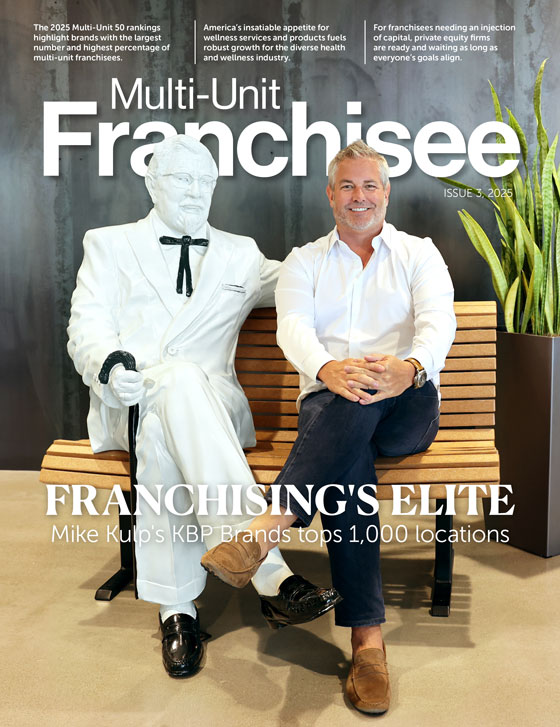
Multi-Unit Franchisee Magazine: Issue 3, 2025
| ADVERTISE | SPONSORED CONTENT |

$250,000
$80,000

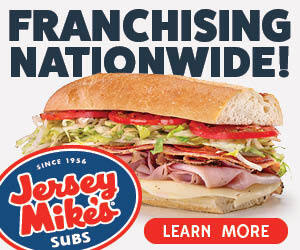
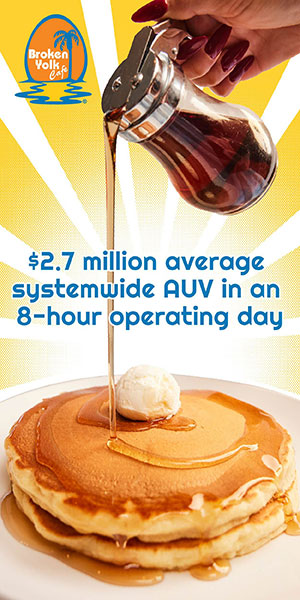


 The multi-unit franchise opportunities listed above are not related to or endorsed by Multi-Unit Franchisee or Franchise Update Media Group. We are not engaged in, supporting, or endorsing any specific franchise, business opportunity, company or individual. No statement in this site is to be construed as a recommendation. We encourage prospective franchise buyers to perform extensive due diligence when considering a franchise opportunity.
The multi-unit franchise opportunities listed above are not related to or endorsed by Multi-Unit Franchisee or Franchise Update Media Group. We are not engaged in, supporting, or endorsing any specific franchise, business opportunity, company or individual. No statement in this site is to be construed as a recommendation. We encourage prospective franchise buyers to perform extensive due diligence when considering a franchise opportunity.